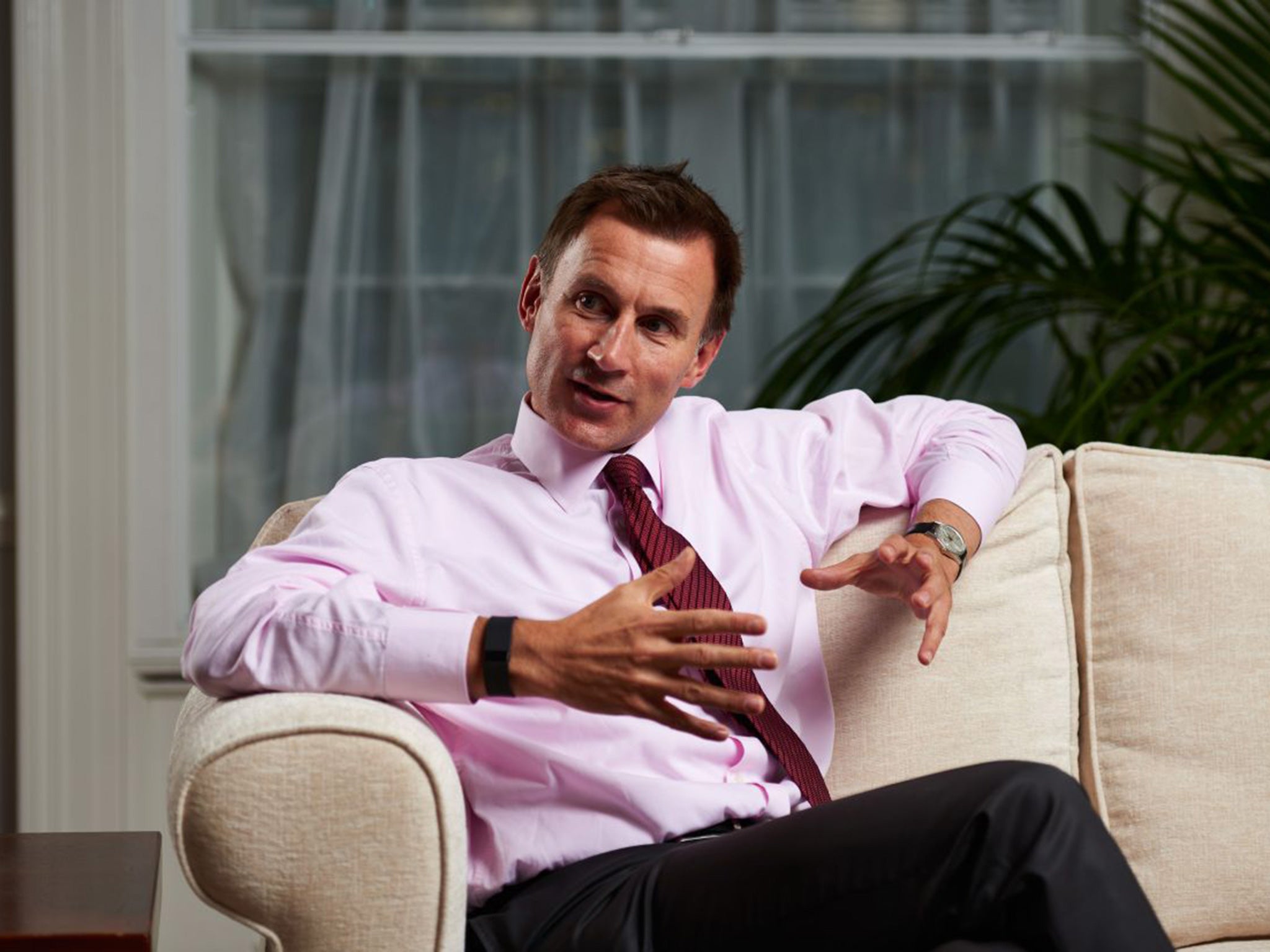Junior doctors strike: Stalemate between Jeremy Hunt and NHS makes action more likely than ever
The junior doctors have proved unwilling to bend, but the blame for the strike falls largely within Westminster

A crunch moment approaches in the spat over junior doctors’ pay. Either the Government will give ground, and agree to drop its insistence that, come what may, a contract will be imposed on junior doctors in August 2016. Or, as looks likely, the British Medical Association union members will vote to strike, which would cause no little chaos in the NHS. Divisions have hardened of late, and few expect a last-minute compromise to emerge.
Although the junior doctors have proved unwilling to bend, the blame for depositing the UK so close to a second NHS strike in three years falls largely within Westminster. The public supports the introduction of a seven-day NHS service, and the Conservatives promised as much in their election manifesto. But the Health Secretary, Jeremy Hunt, has attempted to ride roughshod over the objections of the people who will bear the brunt of the reform.
In short, the Government wants to get more out of these public-sector workers (“unusually productive”, according to the pro-market think tank Reform) without paying them any more. They will be expected to work more antisocial hours, on weeknights and weekends, with the majority receiving roughly the same overall pay, but with a slower route up the salary scale. It was always going to be a tough sell from such a starting point.
The Government says that its reforms will in fact reduce the burden on junior doctors, setting a legal limit of 72 working hours a week, down from 91. But financial penalties for hospitals that force junior doctors to work beyond those hours will be removed, and it was those fines that proved most valuable in protecting junior doctors from working until they dropped, whatever the supposed legal limits.
Mr Hunt does have a case of his own. The new contract would include a tighter link between performance and pay. Other areas of the public sector, from police to teachers, have had to accept this, and junior doctors should not be an exception. The Health Secretary should stick to his guns here, while finding a way to reintroduce fines for overworking junior doctors. He has already given as much ground on pay as is feasible in promising that no doctor who works full time will lose out.
The strike, if it happens, presents a particular problem for Jeremy Corbyn. The Labour leader is a natural ally of public-sector unions, but any strike is unlikely to be backed by the wider population, whom Mr Corbyn still has much to do to win over. The Labour leader faces a mutiny from moderate figures within his party, and any staunch defence of striking doctors would only precipitate a split. Chuka Umunna has already indicated he cannot back the junior doctors, suggesting a strike would go against the wishes of his constituents.
Lurking behind this is the larger problem of NHS finances, and how much the public is willing to pay. The Government struggles to meet junior doctors’ demands in part because of its own plan to extend services, but also because as demand for the NHS rises more broadly, funding is not keeping up. Even the Conservatives’ plan to plough £8bn into the health service by 2020 leaves a shortfall of £22bn.
The public may worship the NHS, but it does not seem ready to cough up for the service’s continued good health through, for example, a 1 per cent increase in National Insurance. It is either that or an NHS that loses its status as one of the wonders of modern medicine, and modern politics.
Join our commenting forum
Join thought-provoking conversations, follow other Independent readers and see their replies
0Comments